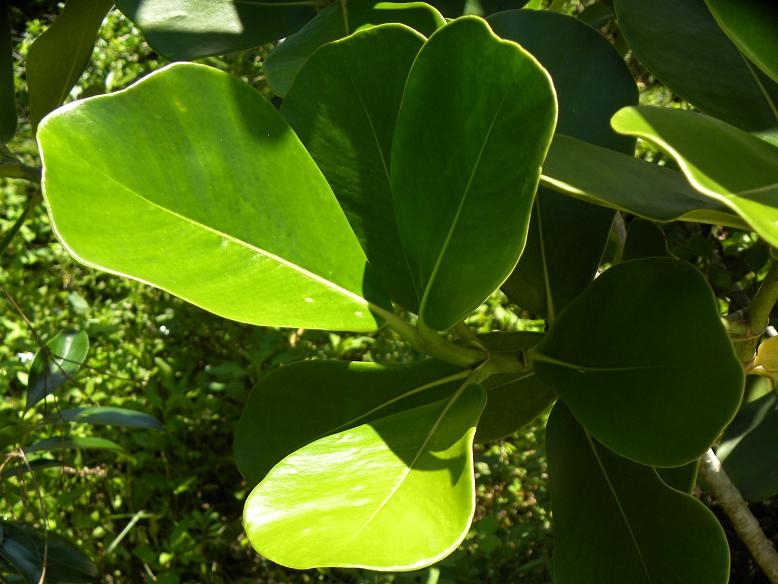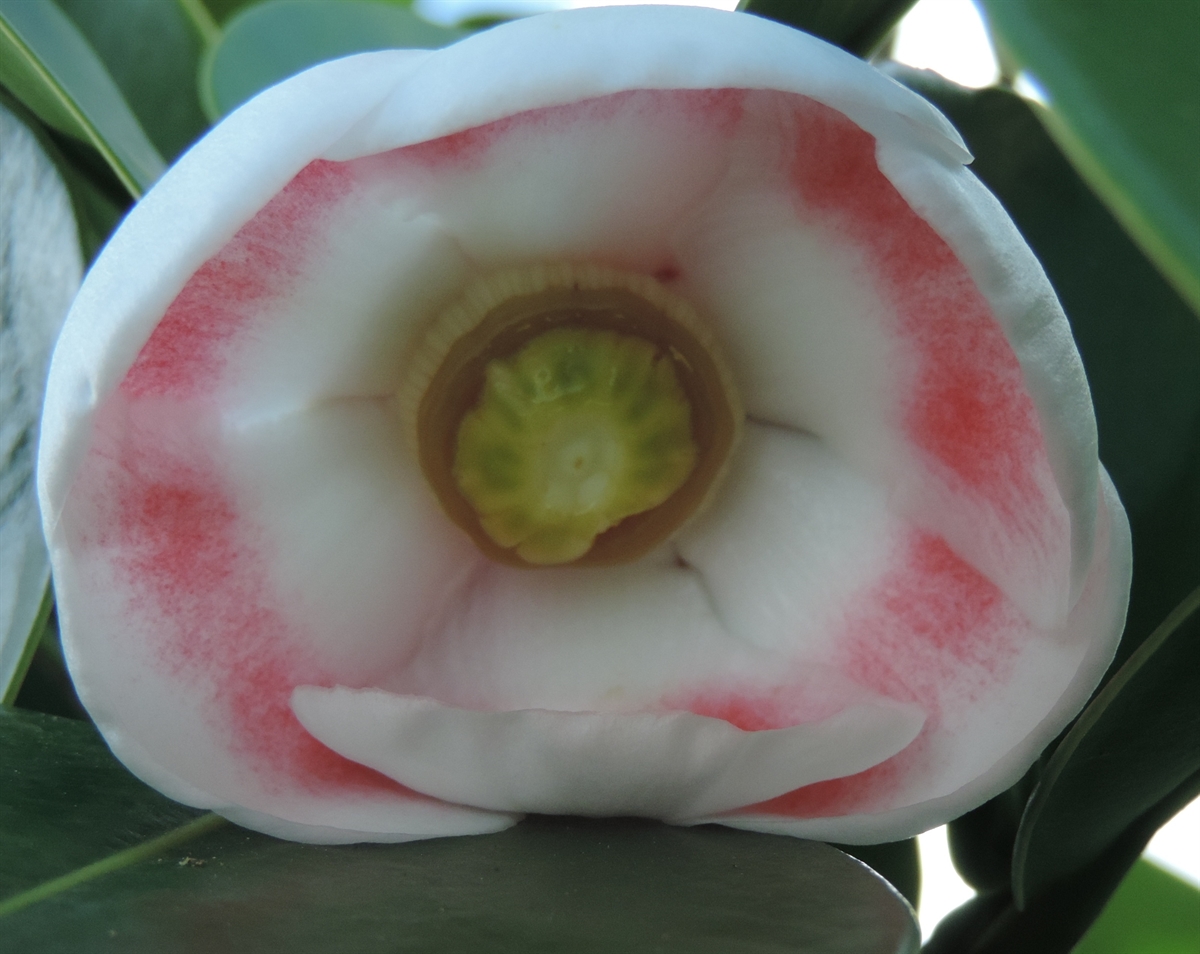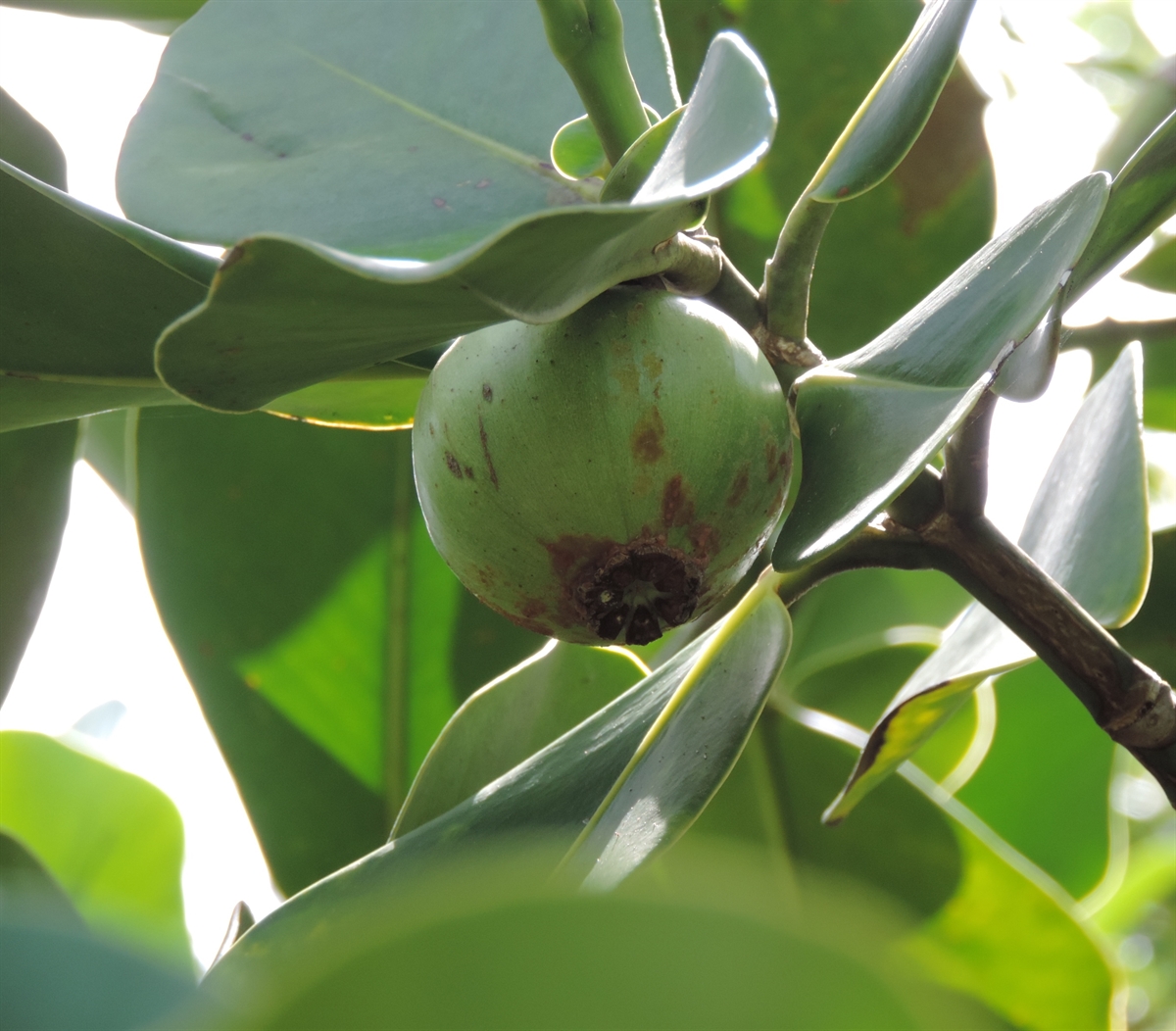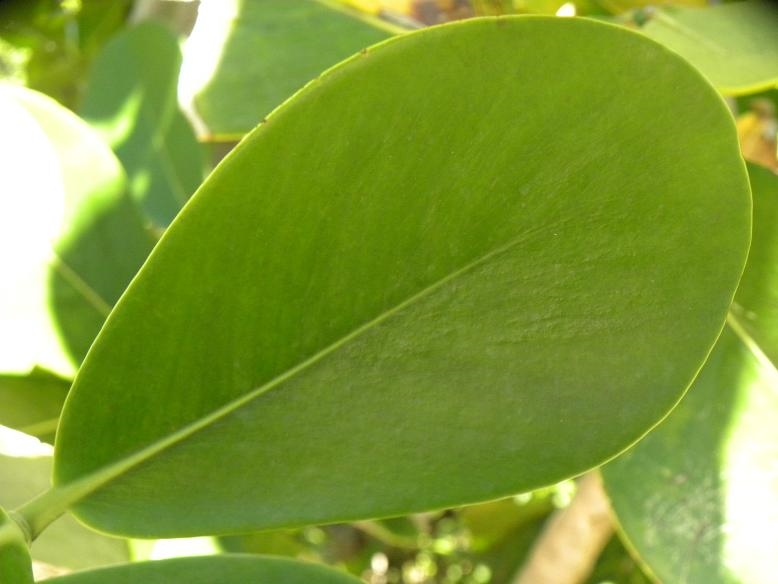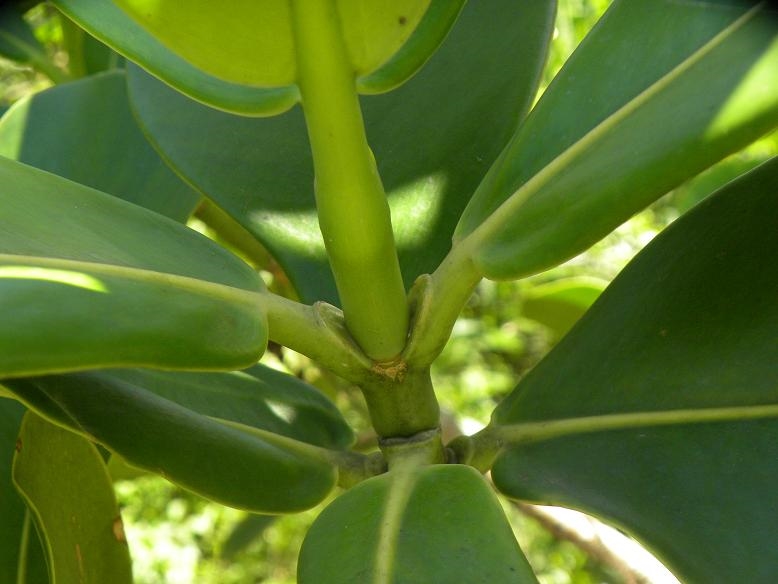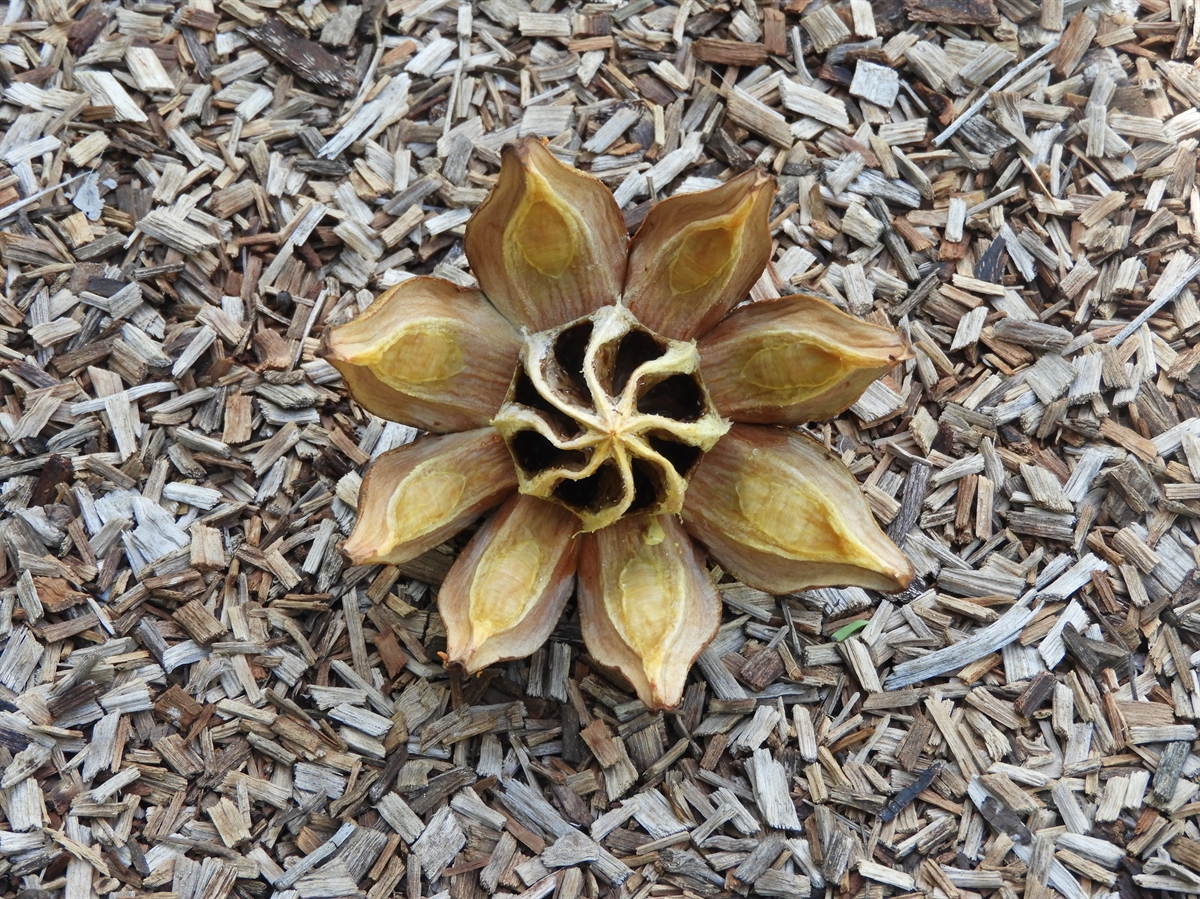Habit: Clusia rosea grows as a medium to large tree up to 15 m in height and 75 cm in diameter often with adventitious and prop roots present. The simple leaves are arranged oppositely with the petiole bases compressed together enveloping the apical meristem. The leaf blades are stiff, to 20 cm in length, obovate with a rounded to slightly notched leaf apex and entire margin. All portions of the plant exude yellowish latex.
The complete, perfect, actinomorphic flowers are solitary; either terminal or axillary. The calyx has 6 green, unfused sepals. The corolla has 6 white to bright pink, unfused petals. The stamens are fused into a ring around the carpel. The carpel has 6 fused ovaries each with multiple seeds. The fruit is a slightly fleshy capsule that splits along 6 suture lines.
Habitat: Clusia rosea grows in and around sinkholes and wet areas in Dry Broadleaf Evergreen Formations – Forests (coppice). It is known to grow in the canopy of other trees and over time take them over and kill as a type of “strangler” similar to Ficus.
Distribution: Clusia rosea occurs throughout the entire Lucayan Archipelago, Florida, the entire Caribbean region and Central and South America.
Medicinal/Cultural/Economic usage: Clusia rosea is not known to be used medicinally in the Lucayan Archipelago.
It is part of the horticultural trade in Florida and the Bahamas due to its distinctive flowers.
Historically Clusia rosea has been used to seal boats.
If the leaves are scratched the yellow exudate dries forming a permanent mark. If one scratches out numbers or letters (i.e. your name) the leaf will then have that mark on them until it gets old and falls off the tree.
